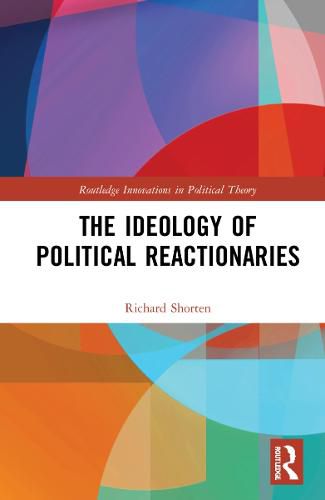Readings Newsletter
Become a Readings Member to make your shopping experience even easier.
Sign in or sign up for free!
You’re not far away from qualifying for FREE standard shipping within Australia
You’ve qualified for FREE standard shipping within Australia
The cart is loading…






The Ideology of Political Reactionaries offers a new perspective on the beliefs reactionaries share, presenting a theory of reactionary ideology in the process. Rather than taking self-contradictions in the reactionary imagination as a reason for diminishment, complexity is taken as a challenge.
The book argues that the features that unite reactionaries lie in rhetoric. Reactionaries make three persuasive appeals: to decadence, conspiracy, and indignation. They also display some recurrent styles. The book’s rhetorical approach entails a critique of the alternative approaches to reactionary politics (dubbed as ‘dispositional’, ‘sociological’, and ‘conceptual’). At the heart of the book is the textual analysis of the writings of a range of figures who are chosen in deliberate diversity and who have interacted with political audiences in different eras and settings: Edmund Burke, Joseph de Maistre, Sarah Palin, Donald Trump, Adolf Hitler, Eric Zemmour, Joe McCarthy, Anders Breivik, and Nigel Farage. Analysis of their writings helps the book to reckon with some particular puzzles of ideologies and rhetoric. These puzzles include the proximity of reactionaries to conservatism, the ambiguity of their nostalgia, the myth of their essential charisma, and the apparent fetishisation of facts.
The Ideology of Political Reactionaries ought to interest anyone concerned about current ideological trends and, in particular, students and scholars of politics and history.
$9.00 standard shipping within Australia
FREE standard shipping within Australia for orders over $100.00
Express & International shipping calculated at checkout
The Ideology of Political Reactionaries offers a new perspective on the beliefs reactionaries share, presenting a theory of reactionary ideology in the process. Rather than taking self-contradictions in the reactionary imagination as a reason for diminishment, complexity is taken as a challenge.
The book argues that the features that unite reactionaries lie in rhetoric. Reactionaries make three persuasive appeals: to decadence, conspiracy, and indignation. They also display some recurrent styles. The book’s rhetorical approach entails a critique of the alternative approaches to reactionary politics (dubbed as ‘dispositional’, ‘sociological’, and ‘conceptual’). At the heart of the book is the textual analysis of the writings of a range of figures who are chosen in deliberate diversity and who have interacted with political audiences in different eras and settings: Edmund Burke, Joseph de Maistre, Sarah Palin, Donald Trump, Adolf Hitler, Eric Zemmour, Joe McCarthy, Anders Breivik, and Nigel Farage. Analysis of their writings helps the book to reckon with some particular puzzles of ideologies and rhetoric. These puzzles include the proximity of reactionaries to conservatism, the ambiguity of their nostalgia, the myth of their essential charisma, and the apparent fetishisation of facts.
The Ideology of Political Reactionaries ought to interest anyone concerned about current ideological trends and, in particular, students and scholars of politics and history.